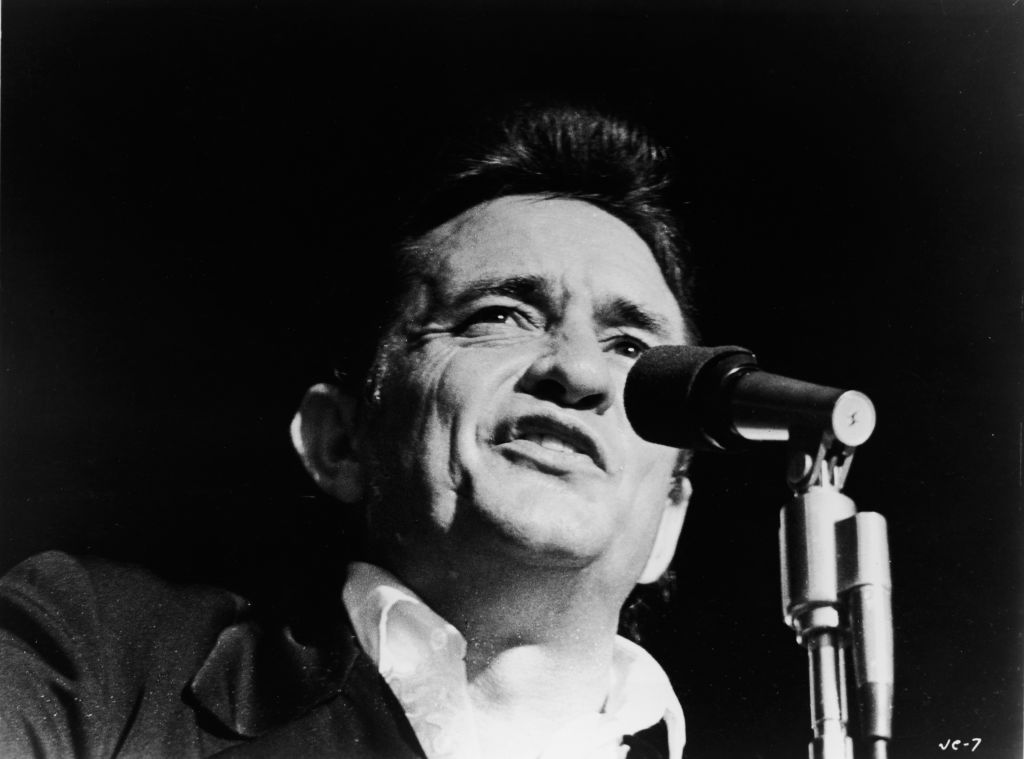It’s the show that made country music famous. And it’s also the show that gave us one of the most famous power couples – and greatest love stories – in country music history.
It was at the Grand Ole Opry in 1956 where Johnny Cash first met June Carter backstage on the day that Cash made his Opry debut. They were both married at the time – Johnny to his first wife Vivian Liberto, and June to country singer Carl Smith (who introduced Johnny to June).
And on July 7, 1956, Johnny Cash walked onto the Grand Ole @Opry’s stage at #TheRyman for the first time … and met June Carter. 💒 #CountryMusicPBS pic.twitter.com/QyFDDtCYsZ
— Ryman Auditorium (@theryman) September 19, 2019
And though they were destined to be together, the couple wouldn’t marry for another 12 years, in part because of their own significant others (June got remarried again, to a Nashville police officer named Rip Nix, after divorcing Smith in 1956), but also in large part because of Johnny’s well-known drug and alcohol problem.
In fact, it go so bad that in 1965 that Johnny was actually banned from the Grand Ole Opry.
From the time of Johnny’s debut, Opry manager Jim Denny had his doubts about whether Cash was a good fit for the Grand Ole Opry. According to Cash:
“He looked at my black clothes and long hair and sideburns and said, ‘What makes you think you belong on the Grand Ole Opry?’
So I said ‘Well, I’ve got a record in the top ten best-sellers’ – which I think was ‘Folsom Prison Blues’ – I said ‘I think they’d like to hear me.’”
And to say they liked to hear him was an understatement.
Johnny won over the crowd – and the Opry – that night with his debut performance, and continued to be a regular on the Opry stage for the next decade.
But by the 1960s, his drug and alcohol abuse had worsened and his performances became more and more erratic. He would take amphetamines when he wanted more energy, and barbiturates when he needed to go to sleep.
So when he showed up drunk to the Ryman Auditorium for his appearance at the Grand Ole Opry in October 1965, it was a recipe for disaster.
A drunken Johnny Cash took the stage, but when there was a problem with his microphone, he took the mic stand and dragged it across the stage, smashing out all of the stage lights and sending shattered glass all over the audience members in the front row.
Bass player Marshall Grant recalled being told after the show:
“Get him out of here, and don’t bring him back.”
After being told that the Opry had no more use for him, Johnny used that as an excuse to party even harder:
“I don’t know how bad they wanted me in the first place, but the night I broke all the lights on the stage with the microphone stand, they said they couldn’t use me anymore. So I left and used that as an excuse to really get wild and wound up in the hospital with my third time I broke my nose.”
Fresh off his banishment from the Opry, Cash left the Ryman and borrowed June Carter’s car – a brand new Cadillac. But as he sped through Nashville into a thunderstorm and messed up on pills and booze, he crashed June’s car into a utility pole.
Johnny broke his nose and teeth on the steering wheel. And to add insult to injury, the policeman who showed up to investigate the accident was none other than June Carter’s husband, Rip Nix.
Cash described this period of time as the lowest of his life. But he also had the First Family of Country Music in his corner.
After a series of arrests in 1967, June Carter, her mother Maybelle and father Ezra moved in with Johnny for a month to help him clean up his act. June had told Johnny that their 1967 tour would be their last tour together – but Johnny was desperate not to lose June, so he agreed to clean up his act.
And June held up her end of the bargain as well: She had previously told Johnny that she wasn’t going to marry him unless he got clean. But when he did, and he proposed to her onstage during a show in Ontario, Canada in February 1968, June finally agreed to marry Johnny Cash.
The couple were married a week after their engagement, but Johnny suffered several setbacks in his recovery over the years. After finally getting sober in 1970, he relapsed in 1977 and again in 1983.
After several inpatient treatments, Johnny finally got sober for the final time – and for good – in 1992.
And despite being issued a lifetime ban from the Grand Ole Opry, he was eventually welcomed back into the family by 1968.
Cash remained a member of the Grand Ole Opry until he passed away in 2003, and today there’s even a “Carter Cash Dressing Room” at the Ryman Auditorium.
Quite the comeback for somebody who was once banned for life.
